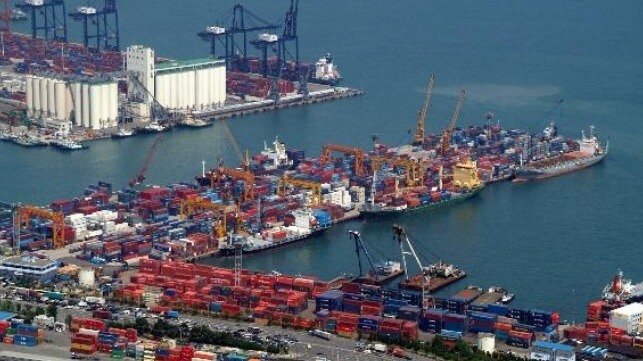South Korea’s Fair Trade Commission imposed fines totaling nearly $81 million on 23 domestic and international shipping companies accusing them of colluding to set freight prices between 2003 and 2018. The controversial move is a follow-up to a previous announcement from the FTC that it was considered fines up to ten times the amount leveled today for violations of Korea’s Fair Trade Act.
The investigation stems from a 2018 complaint by the Korean timber industry to the FTC over rate hikes and the business practices of the shipping lines. The FTC reported that it began a wide-reaching four-year investigation with today’s actions focused specifically on Southeast Asian shipping routes.
“This measure is significant in that it provided an opportunity to break the customs of freight-fixing companies that have been illegally carried out in the shipping market over the past 15 years beyond what is permitted by law,” the FTC said in announcing the fines along with future corrective actions.
The commission found that the price-fixing practices began when three Korean shipping companies formed what they contend was an illegal cartel in 2003. The effort ultimately spread to involve 12 Korean shipping companies as well as 11 international carriers. The FTC says that they agreed on various freight rates, including the lowest basic rates, rate charts, introduced and increased various incidental freight rates, and agreed on biding prices for large shippers. Further, they reported that the shipping lines agreed not to “rob each other of cargo,” set volume agreements, and jointly refused to ship cargoes of companies that did not accept the agreed freight rates.
The cartel is said to have conducted 541 meetings between December 2003 and December 2018 and agreed on a total of 120 freight rates on import and export routes between South Korea and Southeast Asia. The shipping companies closely inspected whether the agreement was being implemented through follow-up meetings and audits. The FTC also says that fines were imposed on companies that violated the agreement and that the shipping companies recognizing that their actions violated the Fair Trade Act sought to cover up their actions in various ways.
The largest single fine of approximately $25 million is being imposed on Korea Marine Transport Company with HMM being fined $3 million. Among the international shipping lines, Wan Hai Lines is being fined more than $9.6 million, Evergreen Marine approximately $2.8 million, and Maersk’s regional operator Sealand fined nearly $2 million.
“In deciding the level of fines, the regulator fully took account of the nature of the shipping industry,” the FTC said during a press briefing. They also acknowledged recent changes in the law enacted by South Korea’s parliament while noting that the actions of the carriers were illegal when they were carrying them out and that the changes to the regulations were not retroactive. The FTC said the fines had also been limited to exports a the carriers’ efforts were not as effective on imports.
The actions marked the first time the Fair Trade Act has been applied to the shipping company’s practices. The FTC drew the line between accepted shipping alliances and what it called illegal actions. Under the regulations, the shipping companies are permitted to have alliances, but they are required to meet with shippers about rates and must report any collective actions to the minister for Oceans and Fisheries and give 30 days’ notice of any change to freight rates or services to shippers.
The Korean Shipping Association renewed its criticism of the FTC saying its actions were detrimental to the shipping industry. The association, which had complained when the FTC said last year that it was reviewing the business practices of the carriers, said that it expects to file a complaint with the administrative court to overturn the FTC’s fines. At the same time, they will continue efforts to have the regulations further amended to remove confusion over the practices that are permitted for the shipping companies.
Source: The Maritime Executive






